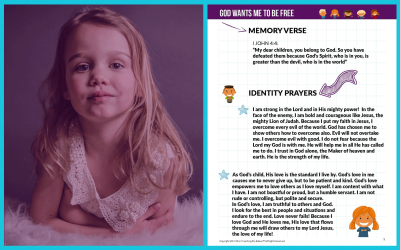
Written by JEANNENE S. for Who’s Teaching the Babies?®
There is a difference between worth (or value) that is found in identity and that which is found in ability. For many of us, we were taught, directly or indirectly, that our worth is based on how well we perform or behave. This performance is directly related to ability, as some of us have more of an ability or capacity to perform than others in certain areas. This could be inherent ability, or learned ability as our capacity increases. Personally, while I do have my own set of inherent abilities just like everyone else, I also learned over my life (and the challenges in it), that I could increase my capacity for ability if I stayed determined. While this is a necessary and good component of growth, if it becomes the means by which I seek to find worth, then it actually becomes destructive to me and those around me. Even when we know better as parents that our children’s worth is not based on performance, and even though we teach it to them in theory, with the pressure of our culture it is all too easy to send this message indirectly.
One parenting style that has become increasingly popular in our culture, is that of praise. In fact, the concern over a child’s self-esteem has become so great, that praise is quickly becoming the child development focus and primary discipline method. The problem is, protecting a child’s self-esteem by continually praising what they do, especially regardless of ability, and especially whether or not you really mean it, sends confusion. To simplify, let’s dive a little deeper into actual meaning of these focal points. Praise can be defined as, “to value; to appraise…commendation for worth…”[1] In addition, self-esteem is defined as, “a confidence and satisfaction in oneself.”[2] So, it would seem from these definitions that the focus of praise should be aimed towards an individual’s worth—who they are. A child’s self-esteem or assessment of their worth should not depend on, or fluctuate around, how well they performed at any given moment. In the same way, discipline or correction for actions should not affect their self-worth. In other words, their actions do not determine their identity or acceptance. “To the praise of the glory of His grace, by which He made us accepted in the Beloved.” (Ephesians 1:6, NKJV). That should come as a relief for you and your parenting!

We can easily praise another when we are praising them for their value, which can only be found in Christ. Even their good works and refinement of their character that produces true, good behavior is credited not only to God’s power, but also to their identity in who He has made them. “For we are God’s handiwork, created in Christ Jesus to do good works, which God prepared in advance for us to do.” (Ephesians 2:10, NIV).

So, what does this mean? Are we not to acknowledge the accomplishments of our children and those around us? Of course we are! The Bible tells us repeatedly to encourage and exhort one another. The very heart of God is to encourage us in our journey. “But the one who prophesies speaks to people for their strengthening, encouraging, and comfort.” (1 Corinthians 14:3, NIV). Again, we are instructed to encourage one another in the body, “Therefore encourage one another and build each other up…” (1 Thessalonians 5:11, NIV). So, what is the difference? How can we encourage our children in a way that builds them up, while still demonstrating genuine, unconditional love for them for who they are—not just what they do? Examining further, we find that encourage means, “to inspire with courage, spirit, or hope…”[3] A word that is also often used interchangeably with encourage in the Bible is the word, “exhort.” Exhort means, “to incite by words or advice.”[4]
We are to build up our children with our words by affirming their value in who they were created to be, while also inspiring them to grow and fulfill or manifest that purpose with words of acknowledgement, inspiration, advice, instruction, hope, and truth about God’s unfailing partnership with them. We love and accept them for who they truly are, while we encourage them to continue in their growth and fulfilling their purpose. We acknowledge how far they’ve come while we inspire and advise them on to the greater things God has prepared for them. It’s ok and right for them to actually find their self-worth in the truth that the Most High created them specifically, loves them unconditionally, and helps them faithfully to fulfill the purpose for which they were created. That is true self-worth that cannot be shaken, and finds its beginning and end in Truth.
[1] “Praise,” Bible Hub, Accessed on January 10, 2017, https://biblehub.com/topical/p/praise.htm.
[2] “Self-esteem,” Miriam Webster, last accessed on January 10, 2017, https://www.merriam-webster.com/dictionary/self–esteem.
[3] “Encourage,” Bible Hub, Accessed on January 10, 2017, https://biblehub.com/topical/e/encourage.htm#web.
[4] “Exhort,” Bible Hub, Accessed on January 10, 2017, https://biblehub.com/topical/e/exhort.htm.
Want to receive new blog posts and resources right in your inbox?
Subscribe to our Mailing List.
Get social with us.
Read More
Mothering Fully Present
God isn’t looking for perfect moms with perfect methods and ideas to raise His kids. Just moms who are humble and pliable and rest-FULL enough from the inside-out to hear His voice and partner with Him.
Identity Statements
Throughout over 30 years of ministering identity and destiny to children, we have put together many prayers, identity statements, and tools to empower and speak truth into precious young lives. Here we have the privilege of being able to offer some of these resources just for YOU to minister life in your very own home.
God Wants Me to be Free – FREE LESSON PLAN
Through this simple, but powerful lesson plan, teach your children the authority that they have over the enemy and how they have the power to choose what they will allow to affect their heart and soul.
Who's Teaching the Babies?®
Establishing identity and destiny one baby at a time.
QUICK LINKS
FOLLOW US




0 Comments